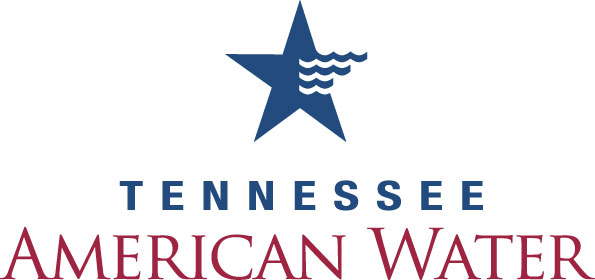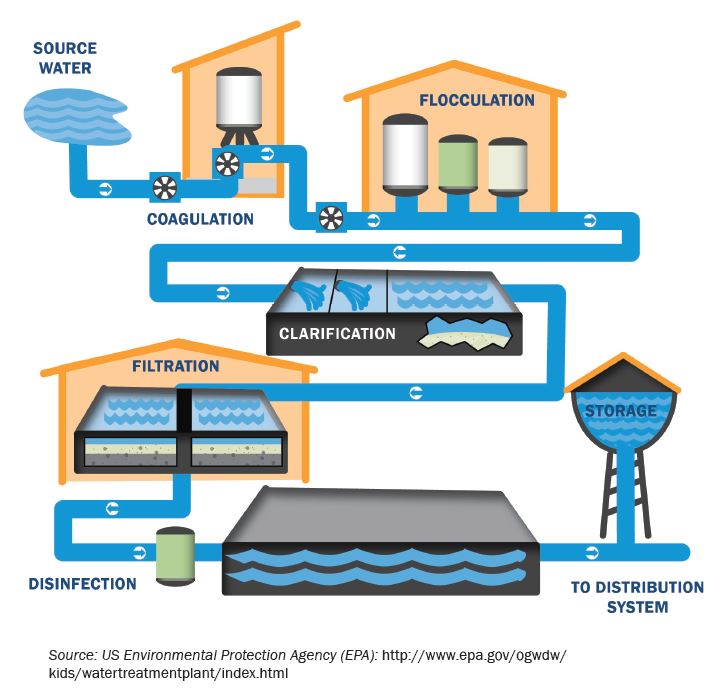
FAQS- WATER QUALITY STANDARDS & TREATMENT PROCESS
WE KNOW THAT CUSTOMERS TRUST US TO PROVIDE WATER THAT IS CLEAN, RELIABLE AND SAFE.THESE FREQUENTLY ASKED QUESTIONS PROVIDE INFORMATION ON WATER QUALITY.
Q:What is the source of the drinking water provided by Drinking water provided by Tennessee American Water to the Chattanooga/Hamilton County area?
A: Drinking water provided by Tennessee American Water to the Chattanooga/Hamilton County area comes from the Tennessee River, a significant surface water source. Our commitment is around the clock attention to providing the highest quality drinking water.
Tennessee American participates in the voluntary Partnership for Safe Water, exceeding water quality standards and achieving higher water clarity.We have earned the Directors Award for over 16 years, one of only nine water providers in Tennessee to achieve this. (More information on the Partnership is listed below.)
Q:How can customers learn about their water quality?
A:Every year, all drinking water providers are required to publish an annual Consumer Confidence Report (CCR) on the state of their water quality from the preceding year.Customers are encouraged to read their CCR to learn more about their drinking water, drinking water standards and water source.
The CCR requires certain water quality data be published such as regulated substances and the range allowed under drinking water standards.Water providers must report any instances of being outside an allowable range or any Notice of Violation (NOV).
An NOV is when a water provider is not in compliance with State and Federal Standards. In 2016, 123 community drinking water systems in Tennessee (26%) received at least one NOV.Tennessee American Water has never received an NOV in its 130 year history.
You can find the CCR for Tennessee American Water at our website, www.tennesseeamwater.com, under the Water Quality tab.
Q: Why do water providers add chemicals to the water?
A: Drinking water sources are subject to contamination and require appropriate treatment to remove disease-causing agents, according to the Centers for Disease Control and Prevention. Public drinking water systems use various methods of water treatment to provide safe drinking water for their communities.
Even while falling as rain, water picks up small amounts of gases, ions, dust, and particulate matter from the atmosphere. Then, as it flows over or through the surface layers of the earth, it dissolves and carries with it some of almost everything it touches.
These added substances may be classified as biological, chemical (organic and inorganic), physical and radiological impurities. They may include industrial and commercial solvents, metal and acid salts, sediments, pesticides, herbicides, plant nutrients, radioactive material, road salts, decaying animal and vegetable matter, and living organisms such as algae, bacteria, and viruses. Many of these impurities are removed or rendered harmless during the water treatment process in potable drinking water plants.
Our local water team constantly monitors the safety and quality of the water we provide, and performs hundreds of tests daily. As with all water providers, we treat our water with chemicals that are approved by the EPA and the Tennessee Department of Environment and Conservation (TDEC). The usage is based on state and federal drinking water standards, water chemistry, the design of the water treatment facility and the water system goals. A drinking water standard is a definite rule, principle, or measurement which establishes safety by a governmental authority.
Q: What are the substances used to treat drinking water?
- Powdered Activated Carbon is used in the filtration process. A water system goal is to have no noticeable odor or tastes.Seasonal changes, especially dry periods, can impact water’s taste and odor.While the water remains safe, the powdered activated carbon reduces any earthy taste or odor that some customers may notice during these times. TDEC also recommends using powdered activated carbon for emergency readiness.
- Chlorine is used to disinfect the bacteria in the water.All drinking water facilities in the State of Tennessee are required by both State & Federal regulations to use chlorine for the prevention of disease.
- HFS (Fluoride) is recommended by the State as well as the American Dental Association to prevent tooth decay. Local governments make the decision whether or not to require their local water providers to add fluoride to the community’s drinking water.
- PACL (coagulant) is utilized based on the water chemistry and plant infrastructure.In a surface water plant, the coagulant binds the sediment together in the settling basins to remove the naturally occurring dirt and minerals from the river.
- ZOP (corrosion inhibitor) is required by the State to stop the leaching of water pipe materials into the drinking water the pipes carry.The water provider decides which chemical or method to use.The importance of corrosion inhibitor was underscored most recently when the decision was made in Flint, Michigan, to stop using the corrosion inhibitor, causing high levels of lead to leach into the drinking water.
Q:What is water filtration?
A: Water filtration is the step in the water treatment process where the water passes through filters of sand, gravel and charcoal to help remove small particles.This step occurs after the larger particles have been removed in the settling basins.
Quality assurance is important in our filtering process. Tennessee American knows that filtering makes a difference in the quality and safety of water and some ground water source providers bypass this step.
Q: What is the Partnership for Safe Water?
A: The Partnership is an alliance of six prestigious drinking water organizations. The Partnership's mission is to improve the quality of water delivered to customers by optimizing water system operations.
One of the measures used to achieve the Directors Award is the clarity of water or turbidity.The turbidity is the number of particles suspended in water and is measured by nephelometric turbidity units (NTU).Turbidity in excess of 5 NTUs is just noticeable to the average person.
TDEC Drinking Water standards require turbidity to be no greater than 0.5 NTUs at least 95% of the time.Tennessee American Water achieves an even lower turbidity of 0.1 NTUs, 99.9% of the time by participating in the Partnership. By achieving a lower turbidity level, we achieve an 80% higher clarity of water than required.
The EPA graphic below illustrates the water treatment process.You can contact Tennessee American Water at (423) 771-4798 to request a tour of our Chattanooga facility.

YOU CAN LEARN MORE ABOUT WATER QUALITY AT THE FOLLOWING EXTERNAL SOURCES.
EPA - Environmental Protection Agency www.epa.gov
AWWA - American Water Works Association www.awwa.org
CDC - Centers for Disease Control and Prevention www.cdc.gov
